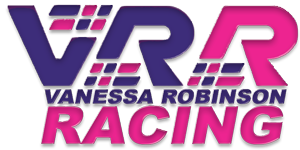When he was 3, Jack Dunn asked his mother to write a script for him and his family to perform.
Now 10, the young actor is performing in Pandemonium Productions’ staging of Newsies: The Musical. He’s also active with the Society of Explorers at his private school in Santa Fe, the May Center for Learning. The small group studies 18th-century British explorer James Cook.
Dunn enjoys learning about history. He also likes to draw. Maybe he’ll grow up to be a Lego engineer, said Dunn, who is among an estimated 15 percent to 20 percent of the population that struggles with some symptoms of dyslexia: slow or inaccurate reading, poor spelling and writing skills, and a tendency to mix up similar words.
The event will include talks on how parents can advocate for dyslexic children and how dyslexia plays out in the classroom, and it will include interviews between students and adults who deal with dyslexia.
Among those speaking at the event will be Vanessa Robinson of Las Cruces, a NASCAR driver.
“I was driving before I had a license,” Robinson, 28, said in an interview.
She sees dyslexia as a gift: “You have issues with reading and spelling, but you also have this ability to achieve in other areas. … I believe it gave me the strength to concentrate on racing and achieve the goals I am achieving now.”
Dyslexia is a neurological disorder that affects parts of the brain that process language. Experts say people with dyslexia often perceive the world in sharper visual focus, display more curiosity and have higher IQs than those without the condition.
“The dyslexic brain pattern often comes with real strength,” said Amy Miller, founder and director of the May Center. Saturday’s conference, she said, “will focus on everything that is right with dyslexia and not on the things that are not working, which is what they often focus on in school. Oftentimes, having dyslexia contributes to people finding out what they are good at.”
Students from the May Center will unveil a comic book they made called Dyslexia is My Super Power.
People with dyslexia might misread the word “soccer” as “scocer” and rely on a computer program to read a news story aloud to them. But they might also posses a talent for making 3D movies, building a house or driving a car at 200 mph around a NASCAR racetrack, like Robinson.
Robinson said her father, Martin Robinson, also is dyslexic. Research has found the disorder is linked to several genes and that the tendency to develop the disorder can be passed from parent to child.
Educators in Robinson’s public prekindergarten classroom diagnosed her with dyslexia at an early age, she said. Often, the disorder isn’t detected until children are much older and struggling to develop reading skills.
Still, Robinson said, the condition posed challenges for her in school.
“There were extra teachers who gave me extra notes to help me,” she said, “but I got bullied because — how do I say this — I was never asked to read out loud or go to the front of the class to read to everyone else.”
She didn’t speak publicly about what she was going through, but she also did not feel ashamed, Robinson said. She knew she had to find a channel for her talent, which seemed to be driving.
When she was 13, her father, who built race car engines, and her mother, Luz, who also raced, put her behind the wheel of a stock car and set her loose on a dirt track. According to her website, www.vanessarobinsonracing.com, she pulled out a win at Southern New Mexico Speedway in Las Cruces against veteran drivers.
“Her competitive nature, unwavering determination and absolute belief in her own talent is making a name for Robinson (and women) in NASCAR’s racing world,” her profile says.
Robinson visited the May Center for Learning last month, when a student interviewed her about her experiences with dyslexia as part of the upcoming conference.
“He asked me about racing and told me he was good at comics and he is great at art,” she said. “That’s where his talent or focus is. He asked me how it was growing up in schools with dyslexia, and I told him about being bullied.”
While she wants to help others with dyslexia, Robinson said she doesn’t see herself as a role model for children struggling with the learning disorder.
“If me talking about my own experiences to students or kids helps them out, I’m happy,” she said.
STORY LINK: https://www.santafenewmexican.com/content/tncms/live/
